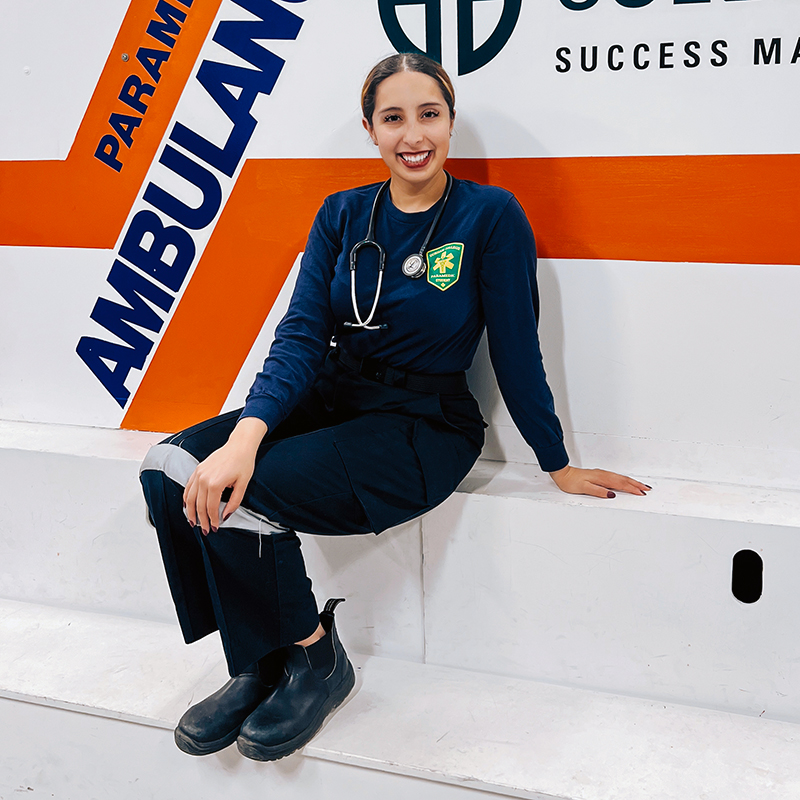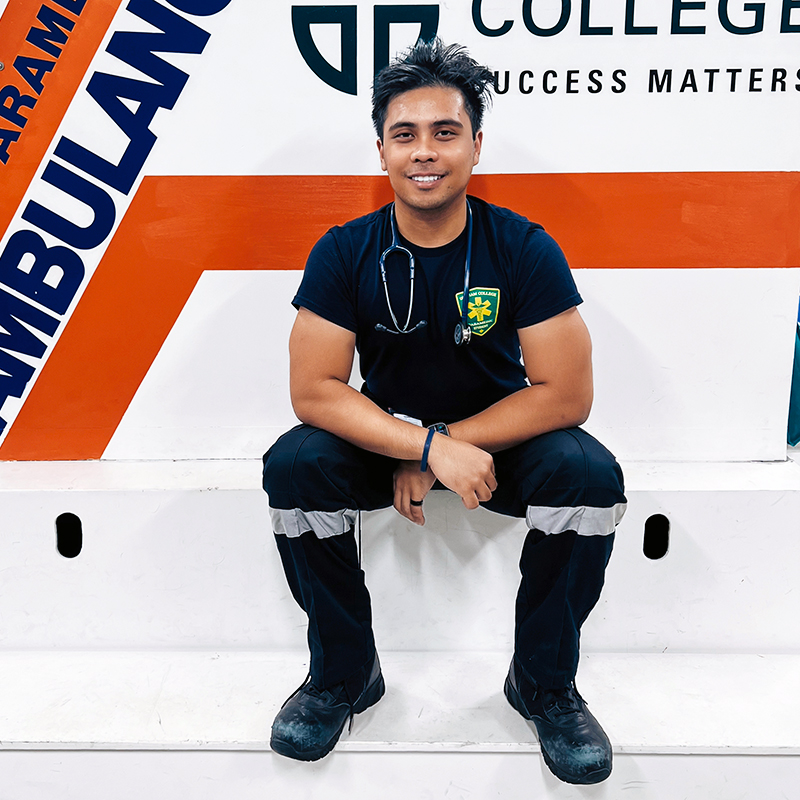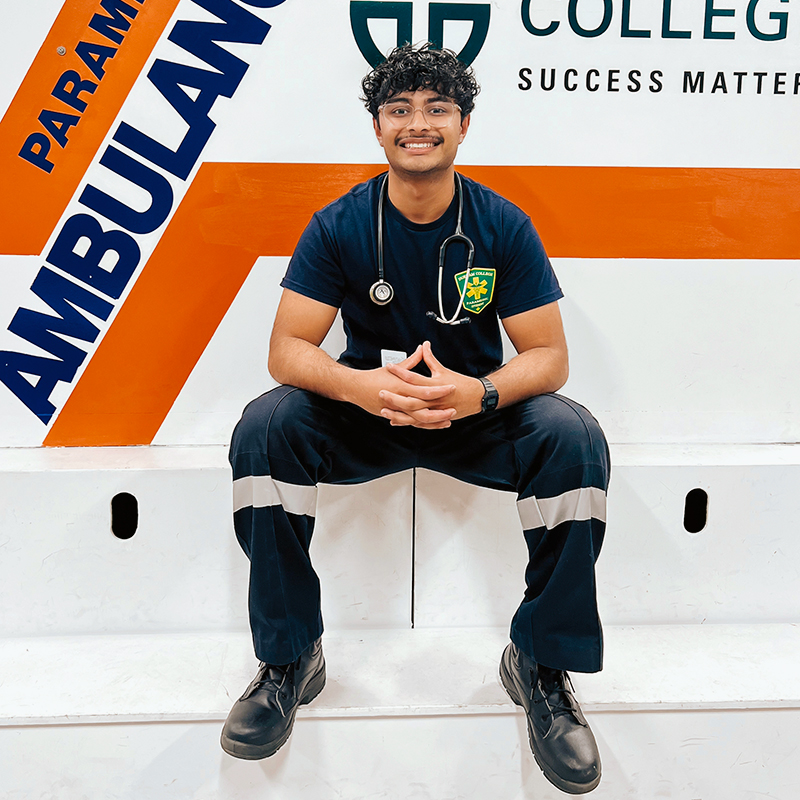Durham College and Seven Generations Education Institute partnership supports Indigenous learners in healthcare
Durham College’s (DC) partnership with Seven Generations Education Institute (SGEI), an Indigenous-led educational organization, is helping expand access to healthcare education for Indigenous and non-Indigenous learners in Northern Ontario. Through the collaboration, DC’s Paramedic program is delivered at SGEI, enabling students in the Treaty 3 area and beyond to complete a DC credential close to home. Importantly, the partnership allows students to study paramedicine, and then obtain employment, while remaining engaged in their local communities.
This spring, DC Paramedic Program Coordinator Dale Button attended SGEI’s convocation ceremony to celebrate the success of SGEI’s third graduating paramedic cohort.
“The SGEI graduation was a truly inspiring event,” said Button. “The ceremony was deeply rooted in Indigenous culture, with an elder offering words of congratulations and drums welcoming the graduates. It was especially moving to see learners of all ages completing courses that reconnected them with their language and heritage. It was a privilege to attend and witness the pride and spirit of the graduates, and particularly rewarding to see that each had already secured employment with local paramedic services.”
For graduates, the experience was equally meaningful.
“I’ve never been part of a graduation quite like this one,” said SGEI Paramedic graduate Makayla Vandenbroere. “The inclusion of Indigenous traditions created an atmosphere that was both inspiring and deeply moving.”
She added that the program’s smaller class size and close-knit environment strengthened the learning experience. “We built meaningful relationships with our instructors and with each other. We weren’t just classmates, we became a tight community that supported one another through every challenge.”
Vandenbroere also highlighted how the program prepared students for their careers. “The program didn’t just teach us the skills needed to become paramedics; it also guided us through the hiring process so we felt prepared, confident, and ready to step into our new roles.”
This partnership reflects DC’s commitment to community-connected education, Indigenous learning, and workforce development, ensuring students across Ontario have equitable access to high-quality training that supports both their future careers and their communities.



